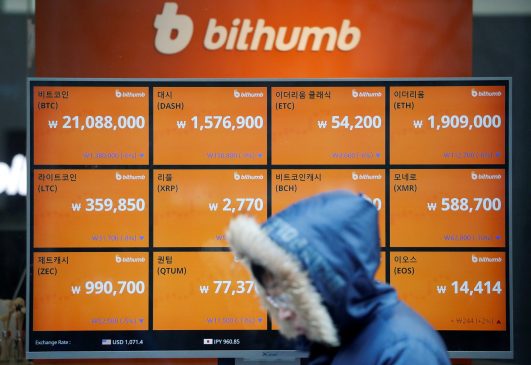Bithumb, which was hacked last month and later asked users to be careful about deposits, has reported a $180 million (205 billion Korean won) loss. The exchange suffers from reduced actual volume and a bear market in cryptocurrencies, according to the Korea Times.
Add It To The List of Bithumb Problems
Bithumb has had a rough year. Just nine months before last month’s hack, about twice as much went missing. A report came out later in the year which found the company probably reports fake volume metrics. At this point, longtime users may be considering other exchanges with a stronger security track record. The exchange laid off dozens of employees in January, during the worst of the bear market, which some believe is now over.
Bithumb, one of South Korea’s largest crypto exchanges, has been hacked again. | Source: Shutterstock
How much does the price of cryptocurrencies affect exchanges? Fees are collected when trades happen. Trades happen around the clock regardless of the cost. One can argue that if the exchange collects its fee in one of the traded currencies, then a reduced price in that currency’s valuation can certainly affect profitability. One might also expect exchanges to plan for the worst, hope for the best.
There is some speculation that the exchange’s financial troubles compounded its losses in the form of last month’s attack. Results of the investigation are still pending, but we do know that only the exchange’s funds were stolen, rather than funds belonging to users. This alone indicates an inside job.
Decentralized Exchanges: When?
Ongoing drama with exchanges like Bithumb, Cryptopia, and QuadrigaCX has provided endless fodder for arguments in favor of decentralized exchanges. Non-custodial solutions are popping up everywhere. CCN recently reported on a company called Algorand, whose product will be a decentralized exchange. The company has yet to announce plans for a token sale, but another exchange, Bgogo, has decided to offer IOU trading in advance.
Non-custodial solutions present their own challenges. In general, a user must be more educated. Such exchanges might be more difficult to insure – if the company lacks full control of the funds being traded, it might be more open to legal interference. The first and largest decentralized token exchange on the Ethereum blockchain, Etherdelta, was hit with regulation by the US federal government last year. The action resulted in a settlement and an agreement on the part of the exchange’s founder.
Bithumb told the Korea Times that things have actually been looking up recently.
“In terms of sales, we saw a 17 percent increase, and we continue to increase overseas investments.”
Decentralized versions are one existential threat to the dominance of traditional exchanges, but ultimately users prefer convenience, volume, and ability to conduct high-frequency trades. The transaction fees on a blockchain like Ethereum or Bitcoin will at times be much higher than the cost of trading on a centralized exchange. For traders who conduct thousands of trades per day, these fees would be prohibitive, to say the least, which ultimately sustains the market for the old exchange model.




